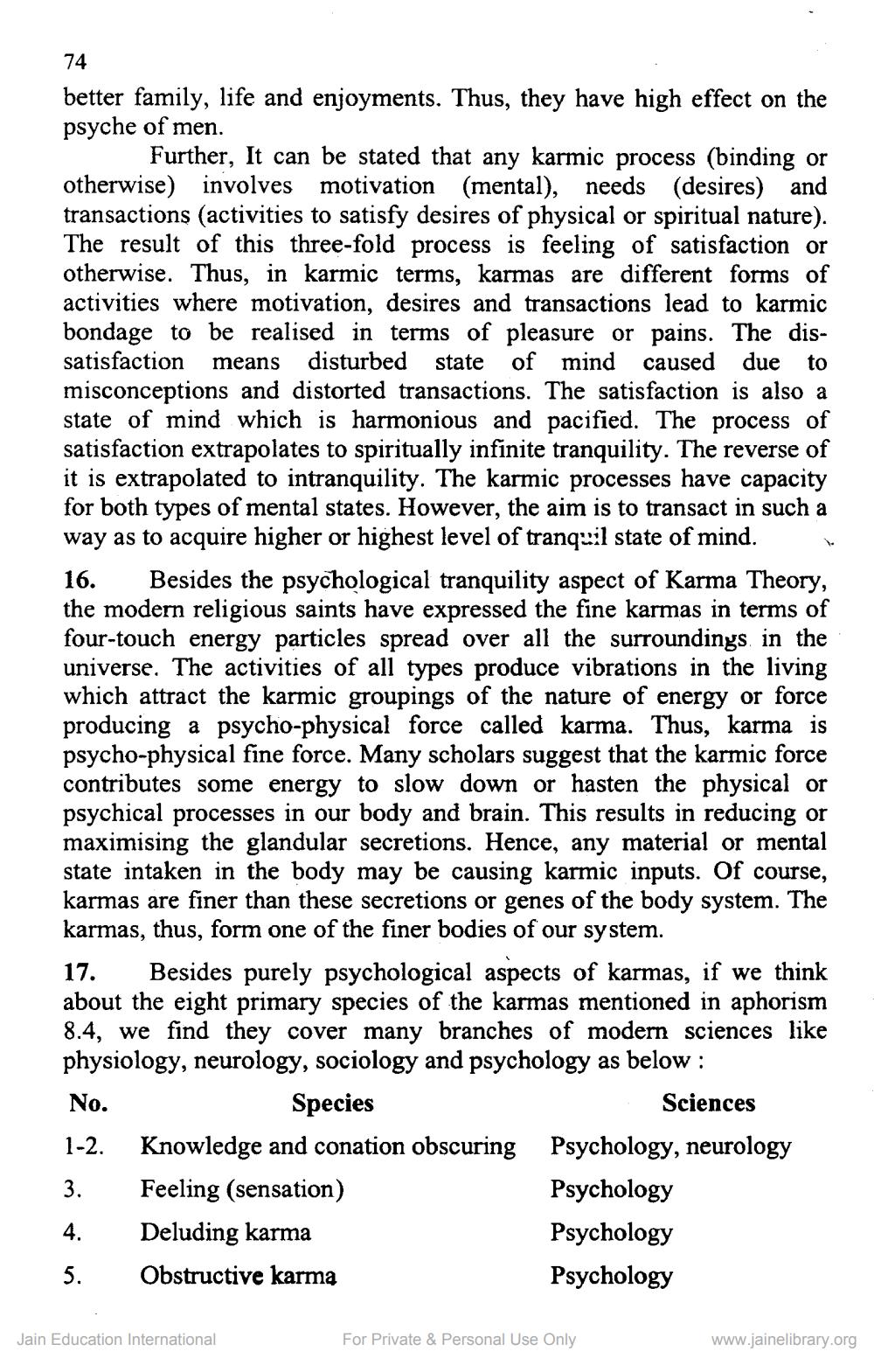________________
74
better family, life and enjoyments. Thus, they have high effect on the psyche of men.
Further, It can be stated that any karmic process (binding or otherwise) involves motivation (mental), needs (desires) and transactions (activities to satisfy desires of physical or spiritual nature). The result of this three-fold process is feeling of satisfaction or otherwise. Thus, in karmic terms, karmas are different forms of activities where motivation, desires and transactions lead to karmic bondage to be realised in terms of pleasure or pains. The dissatisfaction means disturbed state of mind caused due to misconceptions and distorted transactions. The satisfaction is also a state of mind which is harmonious and pacified. The process of satisfaction extrapolates to spiritually infinite tranquility. The reverse of it is extrapolated to intranquility. The karmic processes have capacity for both types of mental states. However, the aim is to transact in such a way as to acquire higher or highest level of tranquil state of mind.
16. Besides the psychological tranquility aspect of Karma Theory, the modern religious saints have expressed the fine karmas in terms of four-touch energy particles spread over all the surroundings in the universe. The activities of all types produce vibrations in the living which attract the karmic groupings of the nature of energy or force producing a psycho-physical force called karma. Thus, karma is psycho-physical fine force. Many scholars suggest that the karmic force contributes some energy to slow down or hasten the physical or psychical processes in our body and brain. This results in reducing or maximising the glandular secretions. Hence, any material or mental state intaken in the body may be causing karmic inputs. Of course, karmas are finer than these secretions or genes of the body system. The karmas, thus, form one of the finer bodies of our system.
17. Besides purely psychological aspects of karmas, if we think about the eight primary species of the karmas mentioned in aphorism 8.4, we find they cover many branches of modern sciences like physiology, neurology, sociology and psychology as below:
Species
Sciences
Knowledge and conation obscuring Psychology, neurology
Feeling (sensation)
Psychology
Deluding karma
Psychology
Obstructive karma
Psychology
No.
1-2.
3.
4.
5.
Jain Education International
For Private & Personal Use Only
www.jainelibrary.org




